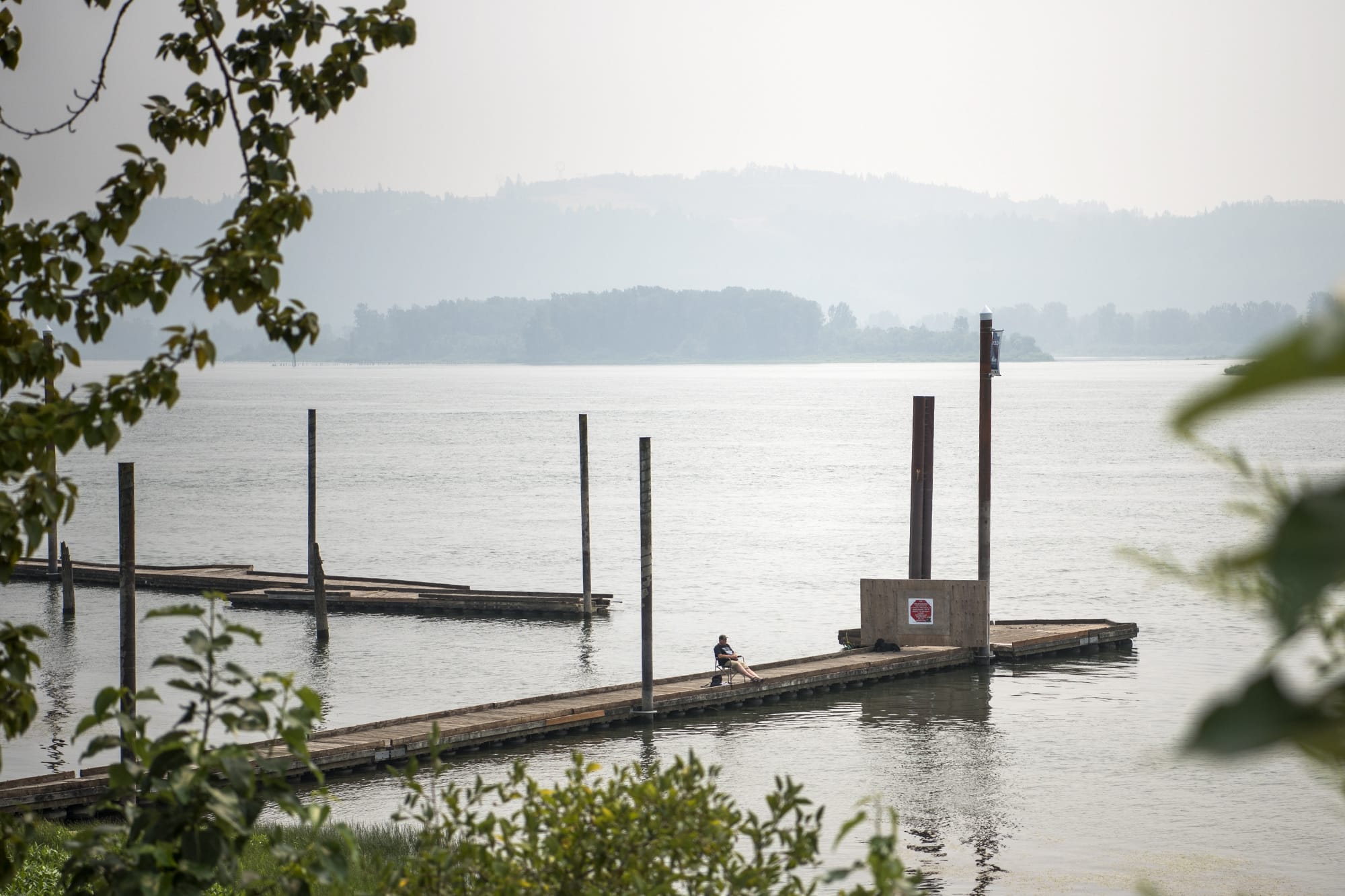Air quality should improve in Clark County by Thursday night, but haze continues to linger and create unhealthy conditions for some sensitive groups of people.
The Washington Smoke Information blog — a coordinated effort by county, state and federal officials to share information on smoke from wildland fires — lists Vancouver’s air quality Wednesday as unhealthy for sensitive groups.
People with medical conditions, such as asthma and heart and lung diseases, and children younger than 18, adults older than 65, pregnant women and smokers are advised to limit spending time outside.
Pollutants in smoke may cause burning eyes and runny nose, and can aggravate other serious health problems.
An end to the bad air days is in sight, however, as increasing winds toward the end of the week should clear some of the haze from the Portland-Vancouver area.
The Southwest Clean Air Agency and Oregon Department of Environmental Quality have issued air quality advisories, which will remain in effect until noon Friday.
“Smoke will remain in the region and will cause air quality to reach unhealthy levels at times through Friday morning,” according to a statement from the National Weather Service. Conditions will show some improvement today, but hazy skies will remain.
According to a National Weather Service forecast discussion, haze higher in the atmosphere is from wildfires across Southern Oregon and Northern California. Smoke and haze at the lower levels are from wildfires to the north and east, carried to the area by low-level offshore winds.
Smoke particulates can make their way into homes. Officials offered several tips to keep indoor air as clean as possible:
• Keep windows and doors closed. Open both for fresh air when air quality improves.
• Run an air conditioner, set it to recirculate and close the fresh air intake. Make sure to change the air conditioner’s filter regularly.
• Use an indoor air filter to reduce the number of irritating particles floating around homes.
• Don’t add to indoor pollution — don’t smoke, use food broilers, candles, incense, fireplaces or gas stoves. And don’t use a vacuum unless it has a high-efficiency particulate air, or HEPA, filter.




